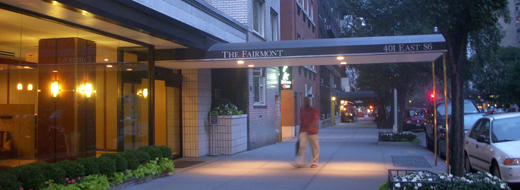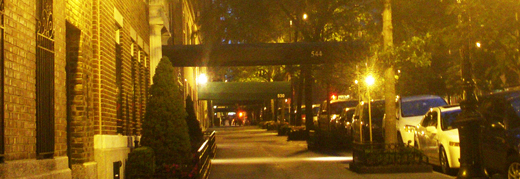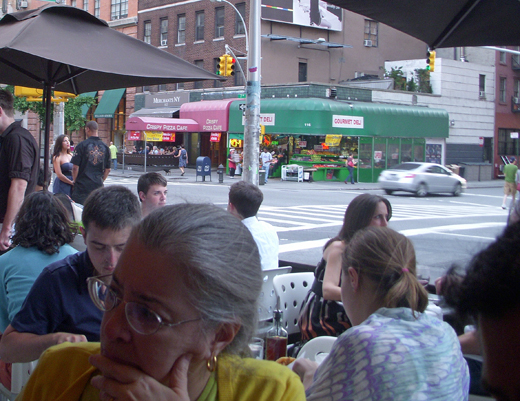
This afternoon, I took a spontaneous walk. It has been a very long time since my last planned walk, and spontaneous acts of any kind have been uncommon. Ever since the beginning of the year, I’ve been living in a sort of wartime state of mind, prepared to sacrifice everything to the production of four Daily Office entries a week, and three or four Portico pages as well. And that’s the minimum. I have no idea what the maximum ought to be. Taking Sundays off has proved to be not entirely satisfactory. Not since law school, thirty years ago, have I lived with the same overhanging cloud of responsibility: there is never a time at which I ought not to be working on the blog.
Meeting the minimum, though, has gotten to be, if not easy, then panic-free. I don’t worry about reviewing the Book Review. I just sit down and do it, and in not very much time. Lately, compiling the Daily Offices has taken on an inner logic, as I’ve come to recognize the kinds of follies and stories that it seems worth my while to follow. Knowing what I want to do is pacing only slightly ahead of knowing how to do it.
Hence the restlessness that drove me out of the apartment shortly after lunch today. I had gone downstairs to collect the mail on the early side, because if The New Yorker wasn’t in the mailbox I wanted (a) to discuss the problem with the mail carrier, if she were still around, and (b) to run across the street to buy a copy at the newsstand while it could still be had. The magazine was waiting for me, and on top of that cheering development was the arrival of a doodad that I bought a few months ago, long before it was released for shipment. I keep calling it a “tail pipe,” but its manufacturers call it a “tap line.” It allows you to use any headphones you like with your iPod Shuffle. Don’t ask why, in addition to the eight or nine Nanos in the house, I own a Shuffle. The purchase was a mistake. But there are things about the device that I like quite as much as I hate the headphones that came with it. Which you must use if you intend to adjust the volume or pause the playback. So, now that I had my tail pipe, I was suddenly in the mood to give it a spin. I was hoping that “It’s a Sin” would come up in the rotation, and it did.
I’ll write about why I’m crazy about the Pet Shop Boys some other time; basically, the band’s output belongs in a stream of European pop that is a lot closer to classical music than anything produced in the United States. (I have never liked real rock-‘n’-roll any more than sports.) By the way: I’m listening, right now as it happens, to the Overture to Bach’s Fourth Orchestral Suite (my favorite of the four; but on this playlist they all come up), and every time the brasses punctuate the slow-and-stately parts (as distinct from the skipping, contrapuntal parts), I’m viscerally shocked by the reminiscence of Rufus Wainwright’s song, “Slideshow.” If you know the song, you’ll recall the thrilling eruptions of brass that seem to claw down a prize from heaven. Before Release the Stars, the Suite wasn’t reminiscent of anything except itself. It ought to be the Rufus song that’s reminiscent, but I paid attention to it, from the first time that I heard it, to a degree that I didn’t attend to this part of the Bach, anyway, until after I knew “Slideshow.”
The weather was grand, considering the heat, which was well above my comfort zone. As if heralding a storm (which might well have hit somewhere else), the air was blustery and, along the River, reminiscent of a wind tunnel. Or it would have been if I had ever been in a wind tunnel.
***
In addition to the walk, I read two stories. One of them, Joshua Ferris’s “The Valetudinarian,” I had to read, since among those Portico pages that I’m committed to composing every week is a write-up of the week’s New Yorker story. I loved Then We Came to the End, Mr Ferris’s big novel of 2007. I didn’t love “The Valetudinarian,” and in fact I’m not sure that I understood it. I’m also unsure about “A Day’s Work,” the Katherine Anne Porter story in the Library of America volume that I’m approaching dutifully. (Porter’s Ship of Fools had just appeared when the reading-for-pleasure lightbulb went on in my adolescent brain, thus marking her forever as someone whom I would read when I grew up. Here, ahem, I am.) The book has rested on the ottoman beside my reading chair in the living room since it arrived, but I’ve only read one other story in all these months. So my reading today was extra dutiful.
The story is very depressing. I don’t mean that it ends unhappily — I’m not really sure how it ends — but that it depicts a vanished New York that still gives me the willies. It’s the “New York” of my childhood dread. I lived in an apartment building on Palmer Road in “Bronxville PO.” Don’t ask me how I knew, but my sense of living at the high end of the range of middle-class apartment buildings stoked a scary idea of what the other end must be like, and that’s where the unhappy couple in “A Day’s Work” live. They quarrel in the clear understand that their altercation can be heard by everyone else in their building (on a Perry Street incapable of dreaming of Sex and the City) and in the one next door as well. The telephone is in the stairwell, and needs to be fed coins. The once beautiful wife takes in laundry, only to denounce its owners as sinners whom she wouldn’t give the time of day if her husband could keep a job. It’s the New York evoked poetically by Joseph Mitchell; by “poetically,” I mean that Mitchell’s evocation obscures the fact that most New Yorkers’ lives in those days was materially barren — which is not at all the same thing as “simple.”
***
Kathleen decided to work late at the office, and I didn’t know what to do for dinner. I wanted to order in, for the obvious reason that ordering in is very easy. But there wasn’t anything that I could order in that I very much wanted to eat. (A burger from Ottomanelli’s was very tempting, but I knew that I’d be disappointed.) So the matter was settled by an avocado in the vegetable basket. It was at its peak, and this created an urgency. I mashed the avocado with a quarter cup of plain Greek yoghurt, a dash of curry powder, and the juice of an entire lime — too much lime, I’m afraid. I tossed in a handful of cubed roasted chicken, a chopped, seeded tomato, and a load of cavatappi (one of my favorite pasta forms). The result needed something — maybe cilantro, perhaps water chestnuts. But the fact that I hadn’t really fiddled over the salad contributed mightily to its flavor. When I was finished, I had to admit that, après tout, j’avais bien diné.




















